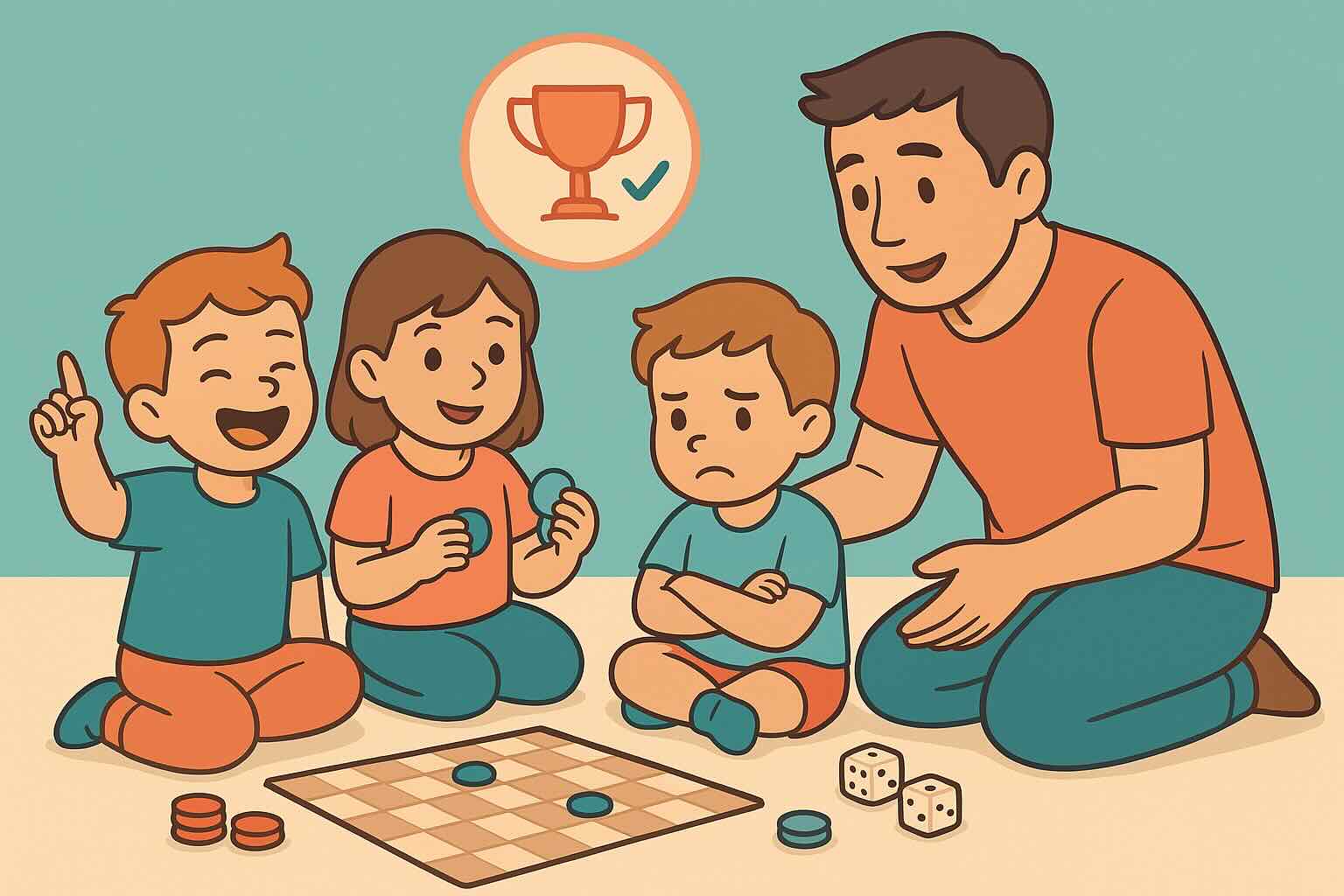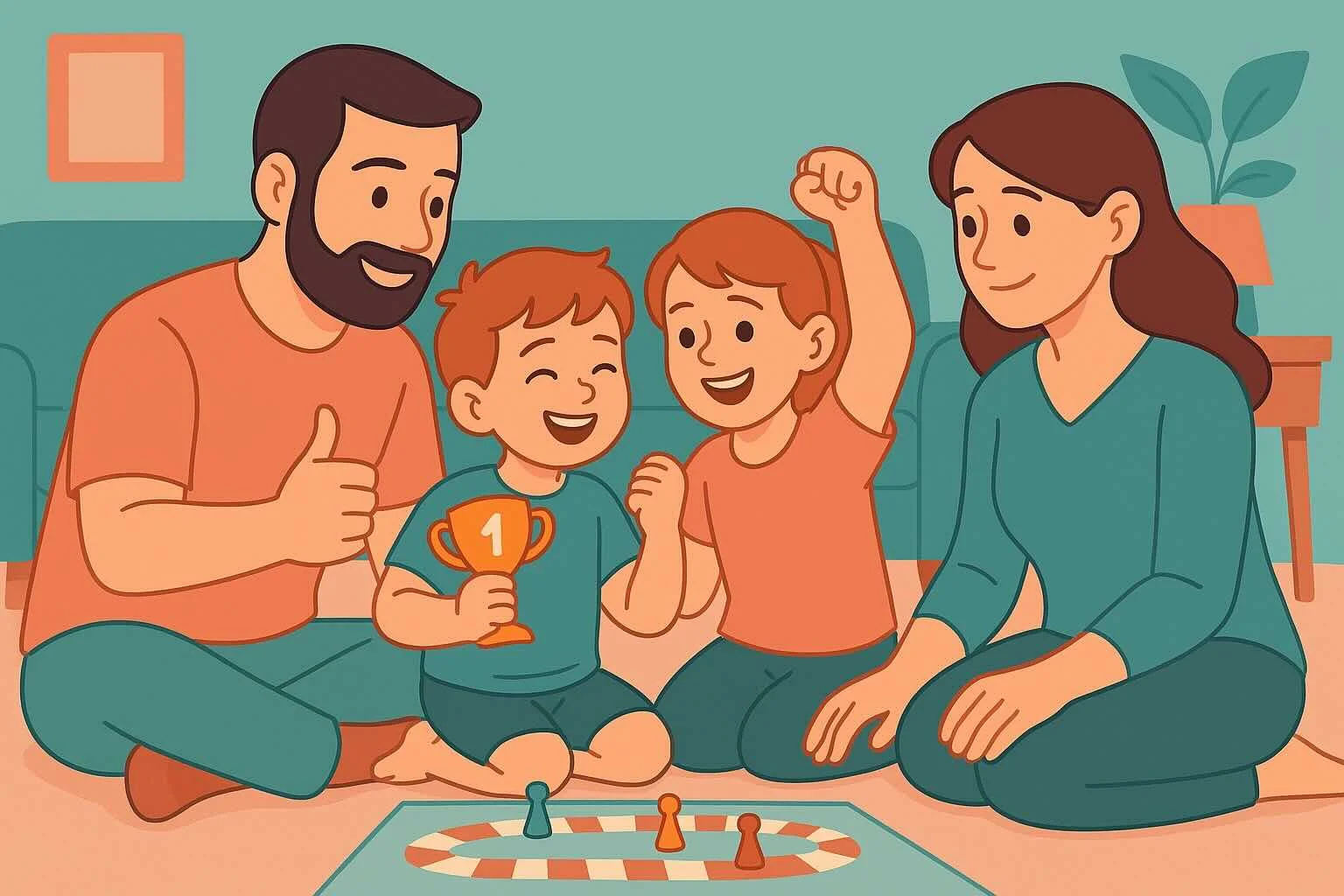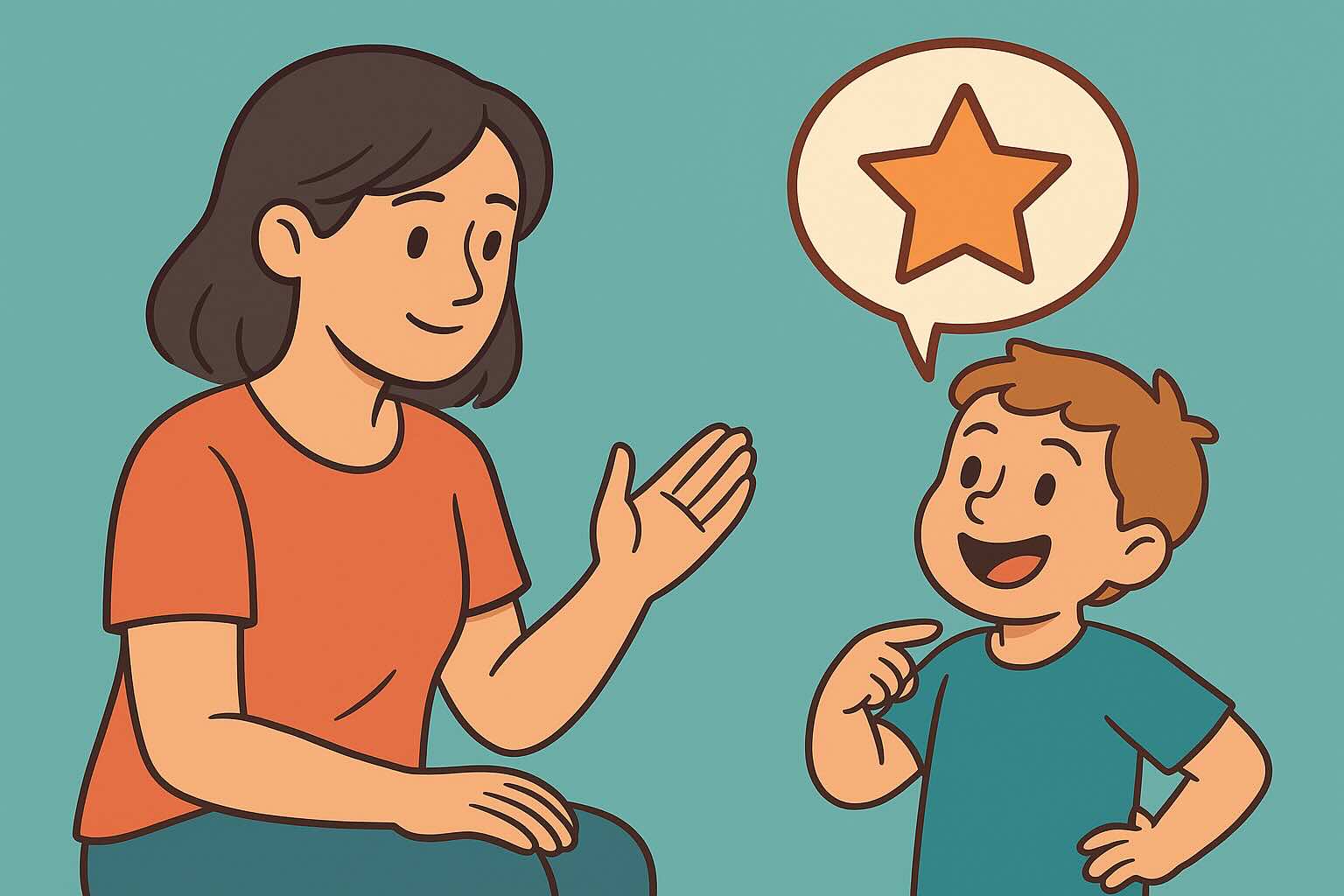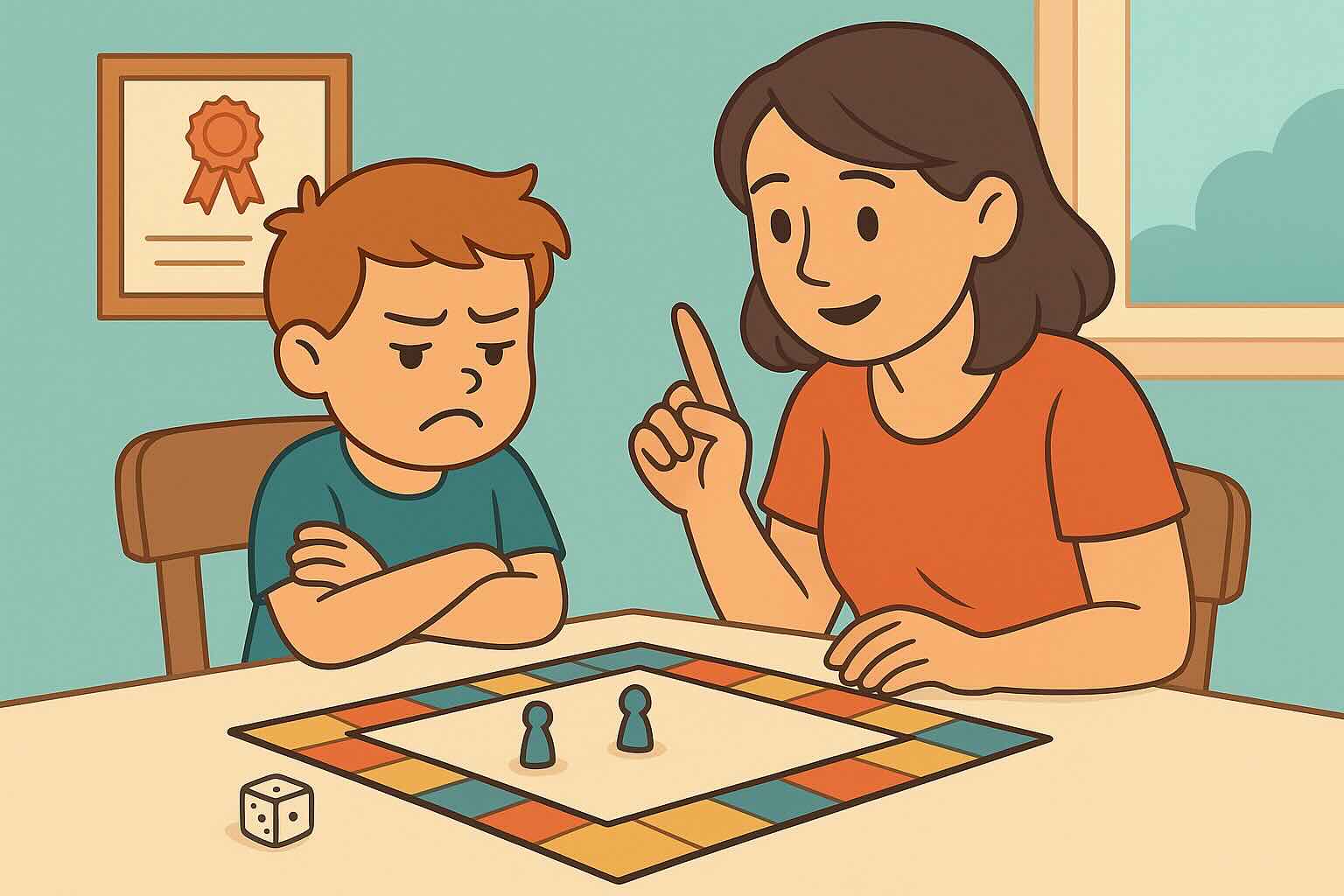Teaching Good Sportsmanship: 9 Character-Building Games


Teaching good sportsmanship goes far beyond games and athletics—it's about building character, empathy, and resilience that will serve your child throughout life. Whether your child is naturally competitive, struggles with losing, or seems uninterested in competition altogether, learning to handle both victory and defeat gracefully is a crucial life skill that impacts relationships, academic performance, and future career success.
This comprehensive guide provides evidence-based strategies to help children ages 3-7 develop genuine sportsmanship through games, sports, and competitive activities. Learn to transform every win and loss into character-building opportunities while maintaining the joy and excitement of play.
For related character development, also check out our guides on child bragging behavior and helping competitive children. You may also find our guides on sibling teasing and social challenges helpful.
What You'll Learn in This Guide
- Sportsmanship Foundations - Core values and age-appropriate expectations
- Character Through Competition - Using games to build life skills
- The Teaching Moments Approach - Turning wins and losses into learning opportunities
- Practical Sportsmanship Skills - Specific behaviors and responses for different situations
- Family and Team Dynamics - Creating supportive competitive environments
- Common Challenges - Addressing cheating, poor losing, and excessive winning behavior
- Long-Term Character Development - Building lasting values through consistent practice
Estimated reading time: 15 minutes
The Foundation of Good Sportsmanship
What Is Sportsmanship Really About?
Sportsmanship is fundamentally about character development through competitive experiences. It encompasses:
Respect and Empathy:
- Treating opponents, teammates, and officials with dignity
- Understanding and caring about others' feelings and experiences
- Recognizing the humanity in everyone involved in competition
Integrity and Honesty:
- Following rules even when no one is watching
- Being truthful about mistakes and rule violations
- Taking responsibility for both successes and failures
Resilience and Emotional Regulation:
- Handling disappointment and setbacks constructively
- Managing excitement and success with humility
- Bouncing back from defeats with determination to improve
Growth Mindset:
- Focusing on effort, improvement, and learning
- Understanding that abilities develop through practice and persistence
- Celebrating progress alongside achievements
Age-Appropriate Sportsmanship Expectations
Ages 3-4: Foundation Building
- Following basic rules consistently
- Sharing equipment and taking turns
- Using kind words even when frustrated
- Celebrating others' successes with adult prompting
- Beginning to understand "fair play" concepts
Ages 5-6: Developing Empathy and Self-Control
- Showing genuine concern for others' feelings
- Apologizing appropriately when they cause harm
- Congratulating opponents after games
- Handling disappointment without major meltdowns
- Beginning to self-regulate during competitive moments
Ages 7+: Advanced Character Development
- Demonstrating leadership in sportsmanship
- Helping younger children learn appropriate behavior
- Understanding the long-term impact of their choices
- Showing resilience through challenging losses
- Displaying genuine humility in victory
Character Development Through Competition
The Life Skills Connection
Every competitive experience teaches valuable life lessons:
Academic Success:
- Persistence through difficult subjects
- Collaboration on group projects
- Handling test results and academic setbacks
- Celebrating classmates' achievements
Social Relationships:
- Navigating conflicts with friends
- Supporting others during difficult times
- Managing jealousy and comparison
- Building trust through consistent character
Future Career Skills:
- Working effectively in teams
- Handling workplace competition and criticism
- Leading with integrity and empathy
- Maintaining professionalism under pressure
The Teaching Moments Philosophy
Every win, loss, and competitive interaction provides opportunities for character development:
Before Competition:
- Discuss expectations for behavior regardless of outcome
- Review what good sportsmanship looks like in specific situations
- Set goals for character alongside performance goals
- Prepare for both success and disappointment
During Competition:
- Model appropriate responses to officiating and opponents
- Provide gentle guidance when sportsmanship wavers
- Celebrate character moments as much as successful plays
- Stay calm and supportive regardless of performance
After Competition:
- Reflect on character decisions and their impact
- Celebrate examples of good sportsmanship observed
- Discuss what could be improved next time
- Connect competitive experiences to life lessons
Practical Sportsmanship Skills for Different Situations
Winning with Grace and Humility
Teach your child how to celebrate appropriately:
Good winning behaviors:
- Congratulating opponents: "Good game! You played really well."
- Acknowledging teammates: "We all worked hard together."
- Recognizing good plays by opponents during the game
- Celebrating without putting others down
- Showing gratitude to coaches, officials, and supporters
Avoid problematic winning behaviors:
- Bragging or boasting about superiority
- Making defeated opponents feel worse
- Taking all credit for team successes
- Showing off or being overly dramatic
- Ignoring others' contributions to success
Scripts for gracious winning:
- "That was a fun game! I really liked how you [specific positive behavior]."
- "Thanks for playing with me. I hope we can play again soon."
- "You made some really good moves. I had to work hard to keep up!"
- "Good game everyone! I had a lot of fun playing."
Losing with Dignity and Learning
Help your child handle disappointment constructively:
Good losing behaviors:
- Congratulating winners genuinely
- Acknowledging their own effort and improvement
- Learning from mistakes without dwelling on them
- Supporting teammates who are also disappointed
- Maintaining respect for opponents and officials
Avoid problematic losing behaviors:
- Blaming others for the loss (teammates, referees, opponents)
- Making excuses or claiming unfairness
- Withdrawing completely or refusing to acknowledge opponents
- Taking frustration out on equipment or other people
- Dwelling excessively on the disappointment
Scripts for gracious losing:
- "Congratulations! You played really well and deserved to win."
- "I'm disappointed, but I learned some things I can work on."
- "Good game! I had fun playing even though we didn't win."
- "Thanks for the game. I hope I can play that well someday."
Handling Opponents and Officials
Teach respect for everyone involved in competition:
Interactions with opponents:
- Treating competitors as friends, not enemies
- Helping opponents up when they fall
- Acknowledging good plays by the other team
- Showing concern when opponents are injured
- Following rules even when opponents don't
Interactions with officials:
- Accepting decisions without arguing
- Saying "thank you" to referees and judges
- Asking questions respectfully if rules are unclear
- Understanding that officials are human and make mistakes
- Focusing on their own performance rather than officiating
Supporting Teammates
Build team character through mutual support:
During success:
- Celebrating teammates' achievements genuinely
- Sharing credit for team accomplishments
- Encouraging teammates to keep improving
- Including everyone in celebrations
During struggles:
- Offering encouragement during difficult moments
- Helping teammates learn from mistakes
- Maintaining team unity during losses
- Supporting teammates who are having personal difficulties
Age-Specific Sportsmanship Teaching Strategies
Ages 3-4: Building Character Foundations
Focus on basic concepts through simple activities:
Teaching strategies:
- Use pretend play to practice sportsmanship scenarios
- Read books about characters who show good sportsmanship
- Practice taking turns and sharing during non-competitive activities
- Celebrate effort and trying rather than just winning
- Keep competitive activities short and low-pressure
Simple games that teach sportsmanship:
- Taking turns rolling a ball back and forth
- Playing catch and celebrating successful catches by both people
- Simple board games with emphasis on fun rather than winning
- Follow-the-leader games that give everyone a chance to lead
- Cooperative activities where everyone succeeds together
Language that builds character:
- "You tried so hard! That's what matters most."
- "Look how happy your friend is that they scored! Let's clap for them."
- "When we play games, everyone should have fun."
- "Good sports are kind to everyone, even when they're disappointed."
Ages 5-6: Developing Empathy and Self-Regulation
Introduce more complex sportsmanship concepts:
Teaching strategies:
- Discuss characters' feelings and motivations in sports stories
- Practice "perspective-taking" exercises during calm moments
- Set specific sportsmanship goals alongside performance goals
- Use real-life examples from professional athletes and teams
- Create family traditions around celebrating character
Appropriate competitive activities:
- Board games with clear rules and time limits
- Simple team sports with modified rules for inclusion
- Individual challenges against personal bests
- Cooperative games that require teamwork
- Activities that rotate leadership and different roles
Advanced character conversations:
- "How do you think your opponent felt when you scored? How can we celebrate in a way that's still kind?"
- "What did you learn about yourself during that game?"
- "Tell me about a time when someone showed you good sportsmanship. How did it make you feel?"
- "What's more important - winning the game or being a good friend?"
Ages 7+: Advanced Character Development and Leadership
Build sophisticated understanding of sportsmanship and leadership:
Teaching strategies:
- Encourage them to model sportsmanship for younger children
- Discuss professional athletes' character choices and consequences
- Connect sportsmanship to other areas of life (school, friendships, family)
- Allow them to lead discussions about team or family sportsmanship values
- Provide opportunities for them to mentor others
Complex competitive situations:
- Organized sports with official rules and referees
- Longer games and tournaments with multiple opportunities for character choices
- Leadership roles within teams or groups
- Competitive situations with higher stakes and more pressure
- Activities that require strategic thinking and long-term planning
Leadership and mentoring opportunities:
- Teaching younger children how to play games
- Being team captains who focus on inclusion and character
- Helping resolve conflicts between other children during games
- Setting examples of good sportsmanship for peers
- Taking responsibility for team morale and culture
Family Strategies for Building Sportsmanship
Creating a Family Culture of Character
Establish family values around competition and character:
Family mission statements:
- "In our family, we try our best and treat others with respect."
- "We celebrate effort and improvement as much as achievements."
- "Good character is more important than winning any game."
- "We support each other through both victories and defeats."
Family traditions that build character:
- Weekly family game nights with emphasis on fun and sportsmanship
- Celebrating "character moments" as much as achievements
- Sharing stories of good sportsmanship observed in others
- Creating family awards for kindness, effort, and improvement
- Volunteering together to help others and build perspective
Modeling Sportsmanship as Parents
Your behavior during competitive situations teaches more than your words:
During your child's games:
- Cheer for effort and good plays by all children
- Remain calm and supportive regardless of outcomes
- Show respect for coaches, officials, and other parents
- Focus on your child's character and effort rather than just performance
- Demonstrate how to handle disappointment and excitement appropriately
During family activities:
- Show good sportsmanship when playing games with your children
- Admit your own mistakes and model how to handle them
- Demonstrate genuine congratulations when others succeed
- Share your own experiences with wins, losses, and character choices
- Stay calm and positive even when family game situations become challenging
Addressing Sportsmanship Challenges
Common family situations and how to handle them:
The sore loser:
- Validate their disappointment while maintaining expectations for behavior
- Help them develop specific strategies for handling losing emotions
- Practice losing scenarios during low-stakes family games
- Celebrate small improvements in handling disappointment
- Connect their feelings to times when they've felt bad about others' poor sportsmanship
The poor winner:
- Address bragging or putting others down immediately
- Help them understand the impact of their words on others
- Practice celebrating in ways that include rather than exclude others
- Set clear expectations about appropriate celebration behavior
- Role-model humble winning during family activities
The child who cheats:
- Address cheating immediately and matter-of-factly
- Help them understand the impact of cheating on trust and relationships
- Practice following rules in low-pressure situations
- Celebrate honest mistakes as learning opportunities
- Discuss why integrity matters more than winning
Long-Term Character Development Through Sports and Games
Building Resilience Through Setbacks
Use competitive disappointments as opportunities for growth:
Teaching resilience mindset:
- "Setbacks are setups for comebacks."
- "Every champion has lost many times—that's how they learned to be great."
- "Your character is shown not by whether you win or lose, but by how you handle both."
- "Disappointment is temporary, but character lasts forever."
Resilience-building activities:
- Setting process goals (effort, attitude, technique) alongside outcome goals
- Keeping journals of lessons learned from both wins and losses
- Celebrating comebacks and improvement over time
- Sharing stories of famous athletes who overcame significant setbacks
- Creating family traditions around "learning from losses"
The Long-Term Perspective
Help your child understand that sportsmanship skills transfer to all areas of life:
Academic applications:
- Handling test results and grades with perspective
- Working collaboratively on group projects
- Supporting classmates' success without jealousy
- Persisting through difficult subjects
- Accepting feedback and criticism constructively
Social applications:
- Maintaining friendships through conflicts and competition
- Supporting friends' achievements genuinely
- Standing up for others who are being treated unfairly
- Being a leader who brings out the best in others
- Building trust through consistent character choices
Future life skills:
- Professional integrity and work ethic
- Leadership abilities and emotional intelligence
- Resilience and adaptability during challenges
- Empathy and respect for others regardless of differences
- Commitment to principles even when it's difficult
When to Seek Additional Support
Recognizing Concerning Patterns
While most sportsmanship challenges are normal, some situations may require additional support:
Warning signs:
- Persistent aggressive behavior during competition that doesn't improve with intervention
- Extreme emotional reactions that seem disproportionate and don't decrease over time
- Cheating or rule-breaking that continues despite consistent consequences
- Complete withdrawal from competitive activities due to fear of losing
- Sportsmanship issues that begin to impact other relationships and areas of life
Professional Resources
Types of support that may be helpful:
Sports psychology for children:
- Specialized coaching for competitive anxiety and performance pressure
- Specific strategies for emotional regulation during competition
- Building confidence and mental toughness appropriately
Family therapy:
- Addressing family dynamics that may contribute to competitive pressure
- Working on communication and support strategies
- Balancing achievement goals with character development
School counseling:
- Support for social skills and peer relationships
- Addressing academic competition and comparison issues
- Building leadership and character skills in school settings
Real-Life Success Stories
The Thompson Family: From Tantrums to Team Leadership
"Our son Jake (6) used to have complete meltdowns whenever he lost any game. Board games became family battlegrounds, and we dreaded any competitive activity. We started focusing on teaching specific sportsmanship skills rather than just trying to stop the tantrums. We practiced 'good losing' during low-stakes family games, celebrated effort and character as much as winning, and had regular conversations about how good sports make games more fun for everyone. It took about 3 months, but now Jake is actually a leader in good sportsmanship among his friends. Just last week, his coach commented on how he helped a teammate who was having a hard day. The transformation has been incredible."
The Rodriguez Family: Building Confidence Through Character
"Our daughter Maria (5) was naturally shy and would avoid competitive activities because she was afraid of losing. We realized that building her sportsmanship skills actually helped her confidence because she learned that her character mattered more than her performance. We started with cooperative games, then moved to competitive activities where we focused heavily on effort and good sportsmanship. We celebrated every time she congratulated an opponent or helped someone who was struggling. Now she actively seeks out competitive activities because she knows she can be successful as a good sport regardless of whether she wins or loses."
The Chen Family: Transforming a Highly Competitive Child
"David (7) was extremely competitive and would put others down when he won and blame everyone else when he lost. We had to completely reframe what 'winning' meant in our family. We started celebrating character moments as championship moments - when he helped an opponent, when he accepted a referee's call gracefully, when he encouraged a teammate. We also had him start teaching younger children, which helped him understand how his behavior affected others. It took about 6 months, but now other parents comment on what a positive influence he is during games. He's still competitive, but now it's channeled into helping his whole team succeed."
Your 8-Week Sportsmanship Development Plan
Weeks 1-2: Foundation and Assessment
- Observe your child's current sportsmanship strengths and challenges
- Begin regular conversations about character and sportsmanship
- Start incorporating character goals alongside performance goals
- Focus on effort and attitude celebration during family activities
Weeks 3-4: Skill Building and Practice
- Practice specific sportsmanship behaviors during family games
- Read books and discuss characters who show good sportsmanship
- Begin addressing concerning behaviors with clear expectations and consequences
- Create family traditions around celebrating character
Weeks 5-6: Real-World Application
- Apply sportsmanship skills in organized activities and sports
- Encourage your child to model good behavior for others
- Address challenges as they arise with teaching conversations
- Connect sportsmanship to other areas of life (school, friendships)
Weeks 7-8: Leadership and Long-Term Development
- Encourage your child to take leadership roles in demonstrating sportsmanship
- Discuss the long-term impact of character choices
- Celebrate growth and improvement in character development
- Plan for ongoing character development and support
Key Takeaways: Building Character Through Competition
- ✅ Sportsmanship is character development through competitive experiences
- ✅ Focus on effort and attitude alongside achievement and outcomes
- ✅ Use every win and loss as a teaching moment for character growth
- ✅ Model the behavior you want to see during competitive situations
- ✅ Teach specific skills for winning gracefully and losing with dignity
- ✅ Connect sports character to life skills and relationships
- ✅ Be patient with the process - character development takes time and consistency
- ✅ Celebrate character moments as much as athletic achievements
- ✅ Build resilience through setbacks and learning opportunities
Remember: Good sportsmanship isn't about being passive or not caring about competition. It's about competing with character, integrity, and respect for others. These lessons will serve your child far beyond any game or sport, building the foundation for success in relationships, academics, and future careers.
This article is based on character education research, sports psychology principles, and child development studies. Individual results vary based on child temperament, family values, and consistency of implementation. Consult with coaches, counselors, or child development specialists if competitive behaviors significantly impact your child's wellbeing or relationships.
Expert Content Library
Access multimedia resources, articles, and expert-reviewed content organized by topics and your child's age.

Competitive Child Toolkit
Complete guide to managing winning and losing with preparation scripts, reflection methods, and age-specific strategies.
Frequently Asked Questions
Need personalized support?
RootWise's AI coach can provide tailored strategies for your specific situation, available 24/7 when you need it most.
Learn More About AI Coaching →



